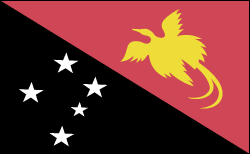Papua New Guinea History


Australia and New Zealand Help Manage Election
In early June 2012, Australia and New Zealand sent troops to Papua New Guinea to help keep order in general elections. The two countries issued a joint statement which said, "Australia and New Zealand are providing practical support in response to a request by Papua New Guinea authorities to assist them with the conduct of a safe, free and fair election." Former Papua New Guinea adviser, Denis Reinhardt warned that there could be violence leading up to the elections. The Lowy Institute also issued a warning of possible violence due to an "enhanced value of political office" and a "proliferation of weapons."
Although tension had been building for months, the struggle over who should be prime minister came to a head on May 21, 2012 when the Supreme Court upheld its earlier ruling to reinstate Sir Michael Somare as prime minister. Four days later, the parliament voted against the court's decision. The chief justice was arrested and charged with sedition by Prime Minister Peter O'Neill's government. O'Neill refused to step down until the election later in June.
Peter O'Neill was sworn in as prime minister on Aug. 3, 2012, after a 94-12 vote in parliament. Achieved with the support of his once-rival Michael Smore, known as the "Grand Chief," O'Neill's election marked the hopeful start of a new period of stability and unity. In a caretaker cabinet announced on Aug. 6, Sir Puka Temu became foreign minister, William Duma defense minister, and Don Polye finance minister.
See also Encyclopedia: Papua New Guinea .
U.S. State Dept. Country Notes: Papua New Guinea
National Statistical Office http://www.nso.gov.pg/







